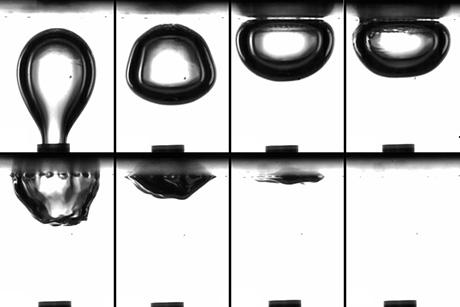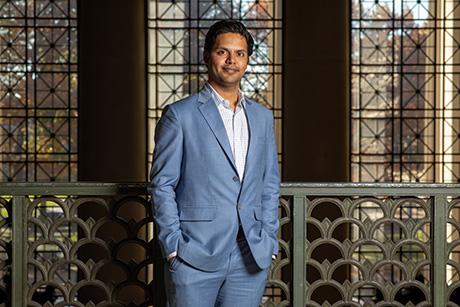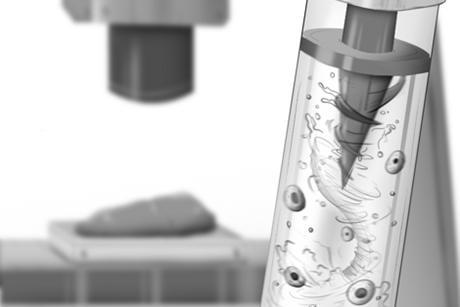Five from MIT earn Simons Foundation Postdoctoral Fellowships in Marine Microbial Ecology
Four current and former MIT-Woods Hole Oceanographic Institution Joint Program students (MIT-WHOI) and one postdoc from the Department of Civil and Environmental Engineering (CEE) have been awarded Simons Foundation Postdoctoral Fellowships in Marine Microbial Ecology, bringing the total of MIT awardees to five out of the nine fellowships granted nationally in 2018.
The Simons Foundation exists to advance the frontiers of research in mathematics and the basic sciences. Its Life Sciences division supports basic research on fundamental questions in biology, and is currently focused on origins of life, microbial oceanography, microbial ecology and evolution, and support of early career scientists. For the postdoctoral fellowships in marine microbial ecology, the foundation encourages applicants outside of strictly ocean research, seeking researchers interested in using cross-disciplinary experience, modeling, and theory development to explore the interrelationship of microorganisms and ocean processes.
“Postdoctoral fellows bring new ideas and energy to a field, so support for postdocs not only helps launch their careers but also pushes the field forward,” says Marian Carlson, director of life sciences at the foundation.
The awards are for three years and include an annual stipend and $25,000 towards research support.
B.B. Cael
MIT-WHOI Joint Program graduate student B.B. Cael — currently working with Professor Mick Follows of the Department of Earth, Atmospheric and Planetary Sciences at MIT — successfully sought Simons Foundation support for a postdoctoral fellowship to build upon his thesis research on the export of biogenic carbon out of the surface ocean and attenuation of sinking particulate matter (SPM) through the ocean’s interior.
“Phytoplankton living in the sunlit surface ocean mediate the transformation of energy, carbon, and inorganic nutrients within the global marine biosphere,” Cael explains. “In the open ocean, the fraction of SPM that is not ‘remineralized’ or degraded by microbes in the photosynthetic zone becomes sequestered well below the permanent thermocline and is effectively removed from exchange with the atmosphere for decades to millennia. This process is one of many ways in which ocean ecology plays a role in our planet’s climate.”
As a postdoc with Angelique E. White in the Department of Oceanography at the University of Hawai’i, Cael will collect measurements to develop and test plausible and mechanistic theories for SPM flux that might provide an improved understanding for climate and ocean models.
Cael holds a BA in mathematics, human biology, and philosophy, and an MS in applied mathematics, both from Brown University.
Matti Gralka
MIT CEE postdoc Matti Gralka studies microscopic interactions in complex microbial communities on chitin particles in the lab of Otto Cordero, the Doherty Assistant Professor in Ocean Utilization and assistant professor of civil and environmental engineering at MIT. He plans to use the Simons award to investigate the resistance and resilience of marine microbial communities to perturbations.
“I am a physicist broadly interested in applying quantitative experiments and models towards understanding fundamental principles about biological systems and processes,” says Gralka. “At MIT, I will study the interplay of ecology and evolution, i.e., can we predict the assembly and function of microbial communities, their adaptation and response to perturbations, without a full knowledge of all microscopic details?”
Prior to MIT, Gralka completed his PhD in physics at the University of California at Berkeley working with Professor Oskar Hallatschek to study evolutionary dynamics in microbial colonies, investigating how spatial structure affects the action of selection.
Bennett Lambert
With this award from the Simons Foundation, graduate student Bennett Lambert of CEE and the MIT-WHOI Joint Program will be pursuing his postdoctoral fellowship at the University of Washington, working with E. Virginia Armbrust on the behavior of marine microbes and the role diversity plays in survival.
Lambert’s current research in CEE Visiting Associate Professor Roman Stocker’s lab investigates the interactions of individual microbes and how those interactions scale up to affect biogeochemistry in the oceans. Traditional oceanographic techniques cannot be used to investigate the microorganisms, causing Lambert and his colleagues to engineer an in situ chemotaxis assay (ISCA). This allows the investigation of microbial behavior in their natural environment.
“To examine the interactions, I've been working to develop microfluidic techniques that can be applied in both the field and the lab. In the Armbrust Lab, I'll be continuing in the same vein and applying microfluidic techniques to study phenotypic heterogeneity in marine picoeukaryotes,” says Lambert.
Prior to MIT, Lambert completed his BS in civil and environmental engineering at the University of Alberta.
Also receiving 2018 Simons Foundation fellowships in marine microbial ecology are two alumni of the MIT-WHOI Joint Program: Emily Zakem PhD ’17 and Nicholas Hawko PhD ’17. Zakem, herself a former member of the Follows Group at MIT, will explore, “what controls the transition from aerobic to anaerobic microbial activity in the ocean,” in the laboratory of Professor Naomi Levine at the University of Southern California. Also at the University of Southern California, Hawko will be working on, “regional versus phylogenetic inheritance of iron metabolic traits in Prochlorococcus,” with Professor Seth John.
A complete list of the award recipients and their projects is available at the Simons Foundation website.



